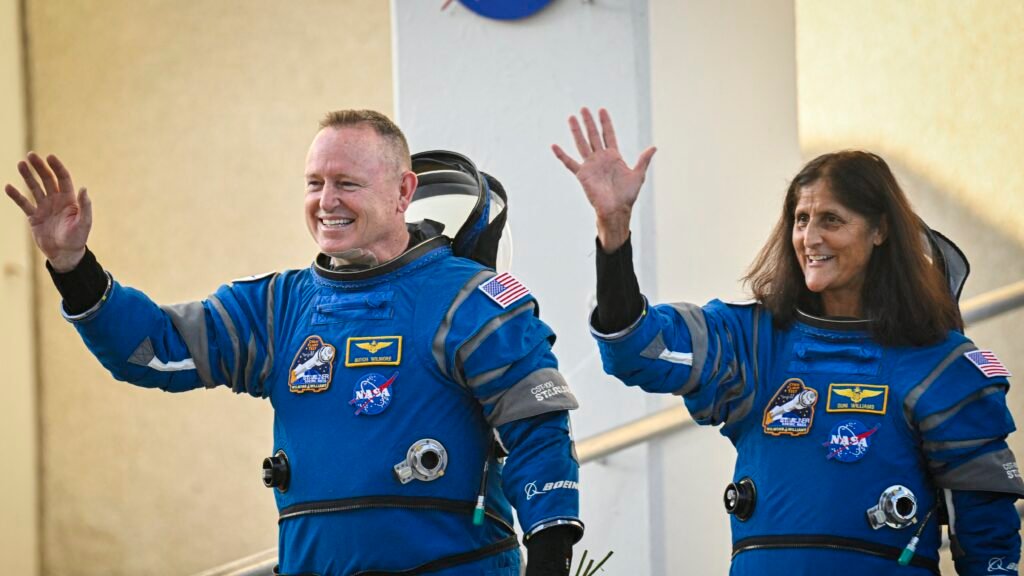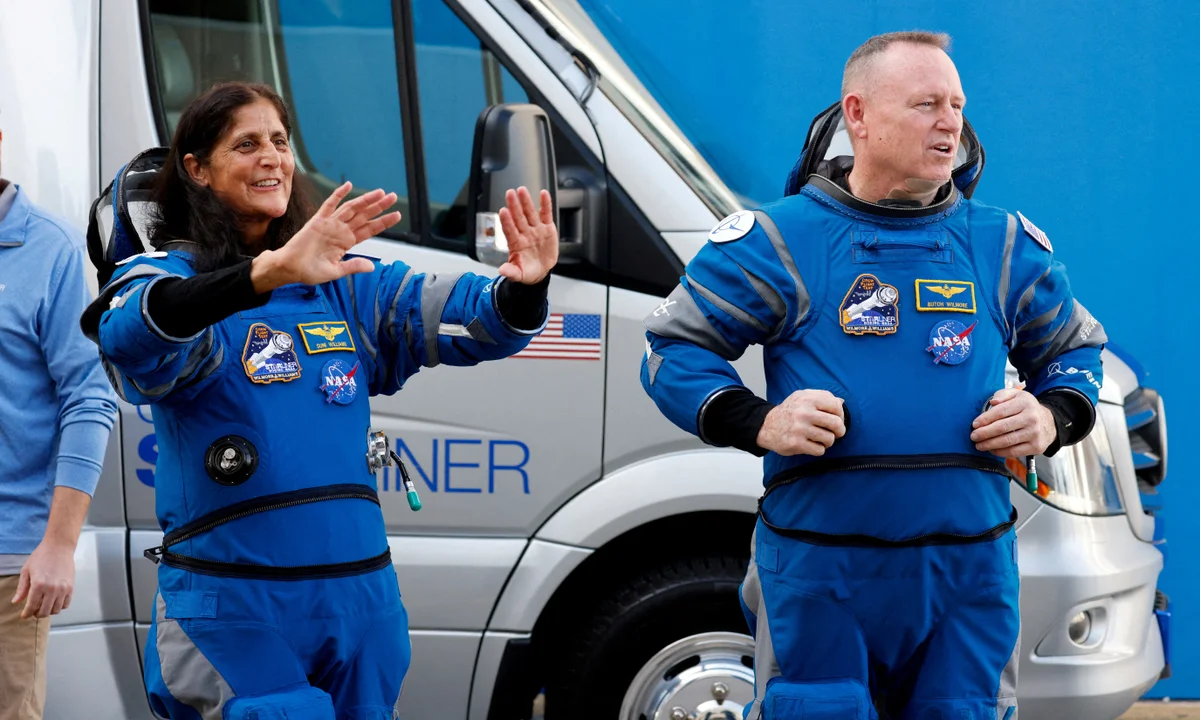What Body Changes The NASA Astronauts Might Face On Their Return To Earth After 9 Months From Space!
After spending an unexpected nine months aboard the International Space Station (ISS), NASA astronauts Sunita Williams and Barry Wilmore are finally returning to Earth. Their journey was meant to be a short eight-day trip, but due to technical issues, they stayed much longer. As they prepare for re-entry, scientists have noted several health challenges astronauts like Williams and Wilmore may face after spending so much time in space. Let’s dive into some of the key health effects and how they could affect the astronauts’ bodies.
1. Bone Density Loss
In the weightlessness of space, the human body doesn’t experience the usual gravitational pull. This reduced gravity means that bones don’t have to support the body’s weight as they do on Earth. Over time, this lack of pressure on the legs, hips, and spine can lead to a significant loss of bone density.
According to experts at Baylor College of Medicine’s Center for Space Medicine, this decrease in bone density can make astronauts more prone to fractures upon returning to Earth. The mineral content from their bones may even move to other areas of the body, increasing the risk of kidney stones or urinary calcium problems.

2. Muscle Weakness
In space, astronauts don’t use their muscles as much because they aren’t fighting against gravity. As a result, muscle mass can decrease. If astronauts don’t maintain an exercise routine while aboard the ISS, they might struggle with weakened muscles when they return to Earth.
A loss of muscle strength can make astronauts more prone to falls and injuries once they’re back on solid ground. Rebuilding muscle strength will be crucial for Williams, Wilmore, and other after returning.
3. Eye and Vision Changes
Space can also have surprising effects on astronauts’ eyes. One of the most common issues is swelling in the back of the eye, which can affect vision. The lack of gravity in space causes fluids to shift in the body, leading to increased pressure in the eyes. When astronauts return to Earth, this can make it difficult for them to adjust to Earth’s gravity.

4. Skin Changes
Astronauts in space don’t walk on solid ground, which means their feet don’t develop the usual callouses from walking and standing. Instead, they use footholds on the ISS, which leads to the formation of callouses on top of their feet. Additionally, space travel can make skin more sensitive due to the weakened immune system and exposure to microbial growth.
While on the ISS, astronauts’ immune systems function at a lower level than they would on Earth, making them more susceptible to skin irritation and other health issues.
5. Brain and Mental Health
The lack of gravity in space also impacts the brain. When first arrive in space, they often experience space motion sickness and a loss of their sense of direction. However, after spending months in space, astronauts like Williams and Wilmore will have adjusted to these changes.

The real challenge begins when they return to Earth. Suddenly, their brains need to readjust to Earth’s gravity. They may experience difficulty with balance, walking, and even stabilizing their gaze. For safety, astronauts are often placed in a chair as soon as they return to help prevent falls or accidents.
Astronauts may also face mental health challenges. A phenomenon called the “Overview Effect” can change how astronauts view the world. When look down at Earth from space, they often have a profound realization of how fragile our planet is. This experience can lead to deep emotional shifts and a re-evaluation of life on Earth.
6. Radiation Exposure
Space radiation is another significant concern. In space, are exposed to about 100 times the amount of radiation they would face on Earth. This increased exposure can lead to radiation sickness, central nervous system issues, degenerative diseases, and, most concerning of all, a higher risk of developing cancer over time.

Experts warn that the long-term effects of radiation exposure are still not fully understood, and this could pose a serious health risk to astronauts who spend extended periods in space.
While space travel offers incredible experiences, it also presents several challenges for astronauts’ health. For Sunita Williams, Barry Wilmore, and others who return from long stays in space, the process of readjusting to life on Earth is not always easy. They will need to work through issues like bone density loss, muscle weakness, and changes to their eyes and skin. Plus, the mental and emotional effects of space travel can be just as challenging as the physical ones. Still, these astronauts’ resilience and dedication continue to push the boundaries of human exploration.The Health Effects NASA Astronauts May Face Upon Returning to Earth







